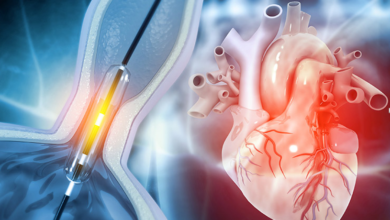Importance of Lab Technologists in Modern Healthcare

Lab technologists have become the backbone of modern healthcare systems. Once seen mainly as behind-the-scenes workers, they now hold a critical role in clinical decision-making. From analyzing blood samples to performing advanced genetic tests, their responsibilities have expanded with the rise of precision medicine. As healthcare shifts toward personalized treatment plans, the need for skilled technologists who can interpret complex results is greater than ever. Their evolving role ensures that medical teams can deliver targeted therapies, improve patient care, and streamline hospital efficiency.
Accurate Diagnostics as the Foundation of Treatment
Accurate diagnostics are the first step toward effective treatment. A single error in testing can lead to misdiagnosis and inappropriate treatment plans. Lab technologists ensure accuracy by following strict quality control measures, using advanced equipment, and cross-verifying results when needed. Whether testing for infectious diseases, monitoring chronic conditions, or detecting rare disorders, their expertise directly impacts patient outcomes. Without reliable lab data, physicians would be left to make assumptions, which increases the risks of complications or delayed care.
Supporting Physicians with Reliable Test Results
Physicians rely heavily on the expertise of lab technologists. About 70% of medical decisions depend on laboratory data, underscoring just how vital these professionals are. For example:
- Oncologists use lab reports to track tumor markers.
- Cardiologists depend on blood enzyme levels to confirm heart attacks.
- Endocrinologists monitor hormone levels to manage diabetes and thyroid issues.
Specialized Skills and Advanced Laboratory Techniques
Modern healthcare demands specialized knowledge, and lab technologists often master niche techniques. Molecular diagnostics, histopathology, and microbiology are just some areas requiring deep expertise. Beyond manual testing, they are also trained to operate high-tech instruments like automated analyzers and PCR machines. With medical technology evolving rapidly, ongoing training ensures that technologists stay updated. These skills allow them to detect diseases at earlier stages, identify treatment resistance, and assist in research that drives medical innovation.
Contribution to Early Disease Detection and Prevention
Early detection can save lives, and lab technologists play a vital role in this process. Routine blood tests, cholesterol checks, and cancer screenings are all made possible by their work. In preventive healthcare, lab technologists are often the first to flag abnormalities before symptoms even appear. This allows doctors to initiate treatment or lifestyle changes sooner, reducing the severity of illness.
Role in Managing Public Health and Outbreaks
Lab technologists are essential during public health crises. During outbreaks of diseases like COVID-19, dengue, or swine flu, their work in diagnostic labs becomes the first line of defense. They process many samples daily, enabling health authorities to track infection patterns and implement control measures. Beyond pandemics, they monitor antibiotic resistance, water quality, and foodborne illnesses.
Read Also: Why Healthcare Providers Are Partnering with Vosita to Grow Their Practice
Lab Technologists and Patient Safety
Patient safety is not just about medical procedures; it also involves accurate laboratory work. Incorrect test results can lead to unnecessary surgeries, wrong medications, or delayed treatments. Lab technologists safeguard patients by meticulously verifying sample integrity, following safety protocols, and ensuring equipment calibration. They also monitor cross-contamination risks in laboratories, which is crucial for infectious disease testing.
Training, Education, and Professional Growth in the Field
Becoming a skilled lab technologist requires structured training and practical exposure. This is where specialized programs play a major role. Hyderabad, for example, has become a hub for medical and paramedical education due to its advanced healthcare infrastructure and access to modern labs. Students benefit from hands-on training in hospitals, research centers, and diagnostic labs. One of the most interesting programs is the Bvoc MLT course in Hyderabad, which equips students with the knowledge and technical skills required to meet national healthcare standards.
As technology advances, laboratories are moving toward automation and artificial intelligence. Automated systems can handle repetitive testing faster, while AI-driven tools assist in interpreting complex data. This shift allows lab technologists to focus on higher-level problem-solving and research. However, human expertise remains irreplaceable, as machines still require oversight for accuracy and ethical considerations.




